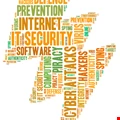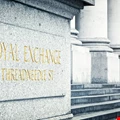Infosecurity News

Flash Malware Soars Over 300% in Q1 2015
McAfee Labs claims users have been slow to patch

Bin Biz Brabantia Hit By Security Breach
Firm claims customer details may have been compromised

New Yorker Mugged of Bitcoins at Gunpoint
Over $1000 stolen from man in Brooklyn

Skype-Dwelling Botnet Serves Up Adware
Pay per-install adware campaign boosted the botnet via phishing messages.

Tesla Debuts Bug Bounty Program
The program will pay researchers up to $1,000 for disclosing vulnerabilities the Tesla web domains.

China Believed to Be Behind Largest-Ever US Government Hack
4 million records on federal employees are believed to be compromised, in an effort to build a massive database on American citizens.

Russia Blamed for Data Stealing Attack on German Parliament
Bundestag hack last month exposed 20,000 lawmakers’ accounts

Plex Mounts Huge DigiCert Encryption Install for Media Streaming
DigiCert will address tens of millions of Plex accounts—making it one of the largest implementations of publicly trusted certificates to date.

#infosec15: DLP Player GeoLang Voted UK’s Most Innovative Small Cyber Security Business
Competition final at Infosecurity Europe shows strength of UK cyber industry

#infosec15: Under Cyber-Attack? Follow CERT UK’s Lead
Plan, plan, plan and then plan some more to build cyber-resilience, say experts

#infosec15: Threat Intelligence Industry Set for Major Consolidation
Experts claim consolidation beckons, as tools get increasingly powerful

Q1 2015 DDoS Attacks Spike, Targeting Cloud
The most-attacked industry was the IT services/cloud/SaaS sector, representing more than one-third of all mitigation activity.

ICO Data Breach Investigations Spike Threefold
All of the major UK banks and lenders have "reported multiple incidents to the ICO in the last two years.”

#infosec15: John McAfee - There’s More Wrong than Right in the Security Industry
Industry veteran talks ‘completely impermeable’ encryption

#infosec15: Focus on People Not Tech for Best Threat Intelligence
Experts argue human brain is essential to effectively interpret the data

#infosec15: Schneier: Nations are Building Up for Cyber War
Cryptographer argues that attacks against companies like Sony are only the start

#infosec15: Pen Testers Lack Code-Level Exploit Savvy
Researcher James Lyne says black box tech has led to disconnect from ‘lower level workings’

#infosec15: DevOps is the ‘End of Security as we Know it’ … in a Good Way
A little bit of empathy could go a long way, experts argue
#infosec15: UK Firms Urged to Step Up to Combat New Breed of Social Engineers
Phishing emails are least of their worries, claims leading ‘psychological hacker’

#infosec15: Call for New ICO Powers as Watchdog Misses Thousands of Breaches
Police dealt with at least 13,000 device thefts, but only 1,000 breaches reported to ICO




